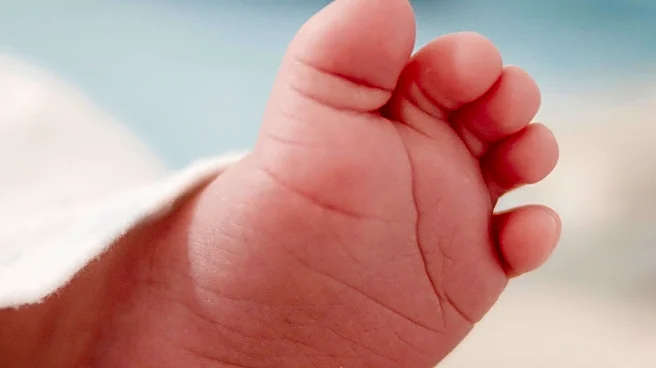What's Happening?
An inquest at Rochdale Coroner's Court has revealed significant failings in the antenatal care provided to Jennifer Cahill, who died along with her baby following a home birth. The coroner found that inexperienced community midwives failed to monitor
the baby correctly, contributing to the deaths. Jennifer Cahill suffered a haemorrhage during labor, and the coroner noted that earlier hospital intervention might have saved her and her child. The Manchester University NHS Foundation Trust has acknowledged serious failures and has since remodeled its home birth service to enhance safety.
Why It's Important?
The findings from the inquest underscore critical issues in the provision of home birth services, particularly concerning the experience and preparedness of attending midwives. This case highlights the need for stringent protocols and training for home births, especially for high-risk cases. The trust's acknowledgment and subsequent changes to its services reflect a broader need for healthcare systems to ensure patient safety and prevent similar tragedies. The case may prompt healthcare providers to reevaluate their home birth policies and training programs, potentially leading to improved maternal and infant care standards.
What's Next?
Following the inquest, the Manchester University NHS Foundation Trust has committed to studying the coroner's conclusions to identify further actions needed to prevent future incidents. The trust's deputy chief executive has stated that comprehensive changes have been made to the home birth service, but the family of Jennifer Cahill remains deeply saddened that these changes were only implemented post-tragedy. The healthcare community may see increased scrutiny and calls for reform in home birth practices, with potential policy changes aimed at enhancing safety and oversight.

















